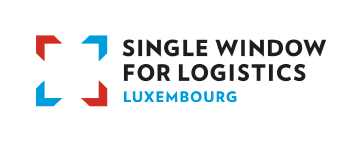Definition
Food contact material are materials and articles intended to come into contact, directly or indirectly, with foodstuffs.
Food contact materials include not only packaging and packing, but also containers and kitchen utensils (cutlery, dishes), machines and materials used in production, storage or transport, as well as bottle nipples and pacifiers for babies.
They may be manufactured from various materials such as plastics, ceramics, paper and cardboard as well as metals and alloys.
Obligations and controls
The constitution of food contact materials must follow specific rules to limit the transfer of substances originating from the materials to the food products in order to prevent contamination (principle of inertia) except for active materials. Food contact materials must also be manufactured in accordance with good manufacturing practices defined by regulation.
Food contact materials must not be hazardous to human health, modify the composition or the food products or lead to an alteration of their organoleptic characteristics, i.e. their taste, odor, appearance, color or food texture.
Food contact materials are also subject to a traceability and labeling obligation. On the other hand, the obligation of a declaration of compliance is limited to materials regulated by specific measures.
These specific measures have been set at the European level for the following materials:
- materials and articles made of plastic
- materials and articles made of recycled plastic
- active and intelligent materials and articles
- materials and articles made of ceramics
- materials and articles made of regenerated cellulose file
- limitation on the use of certain epoxy derivatives
- limitation on N-nitrosamines and N-nitrosatable substances in elastomer or rubber
In addition to European laws, there are national laws of other Member States, political resolutions and declarations of the Council of Europe, as well as standards and guidelines.
Controls of food contact materials, based on risk analysis, are carried out in Luxembourg by the Food Safety Unit. These controls are carried out at Luxembourg manufacturers, distributors and users. At the same time, controls are also carried out at importation.
The importation of materials and articles in polyamide plastic and melamine material from China and Hong Kong is subject to reinforced control. Importers must provide notice of importation to the Food Safety Unit at least two business days before the expected date and time of arrival. At the time of importation, the following documents must be available:
- the import declaration required by regulation
- a laboratory report indicating the total of primary aromatic amides for the materials and articles in polyamide
- a laboratory report indicating the formaldehyde content for materials and articles in melamine
Related documents
The exportation of food contact materials may require beforehand a free sale certificate or at the time of export a health certificate if the destination country so requires.
An export health certificate, required by many third countries on importation, must include the national requirements of the destination country.
In some countries a free sale certificate, i.e. a document certifying that the products are sold or may be freely sold in Luxembourg, is sufficient.
Related procedures
The following procedure described on the Guichet.lu website is used to request a certificate:
Related organizations
These materials are controlled by the Food Safety Unit.


